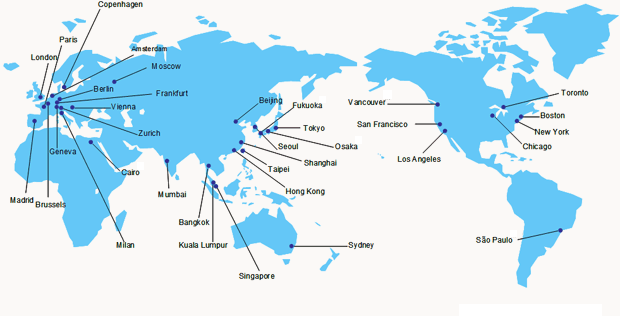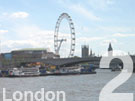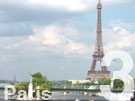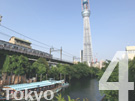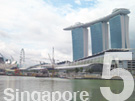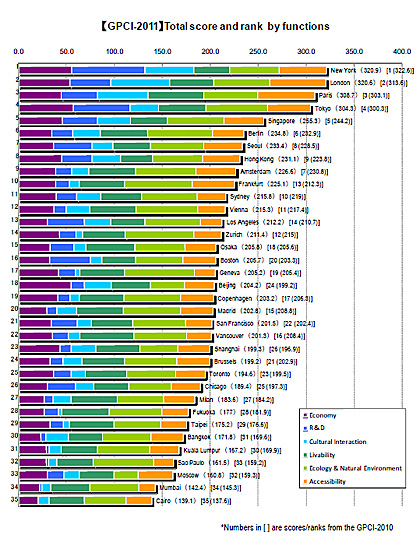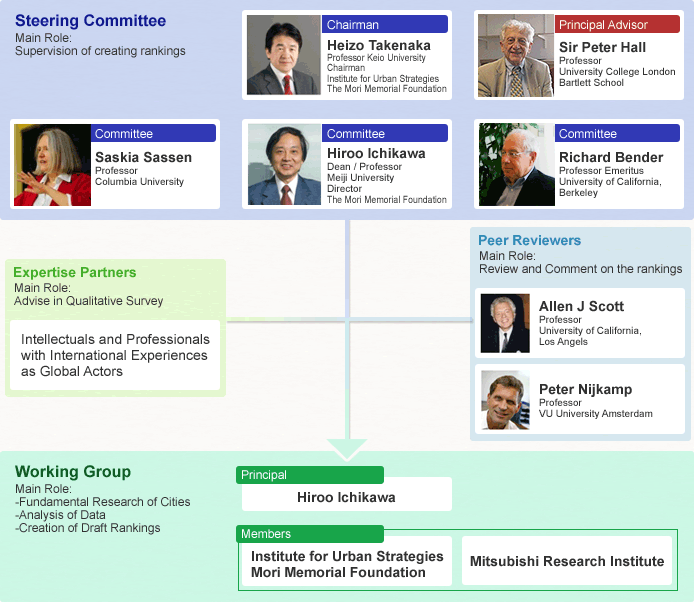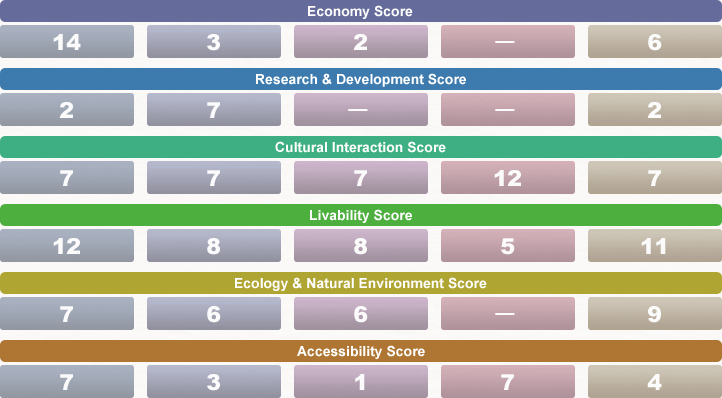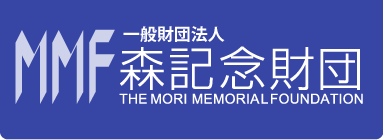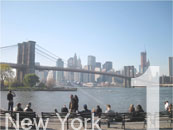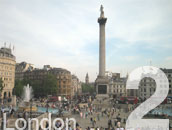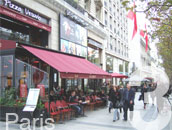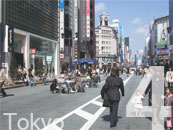Under severe global competition among cities, the Global Power City Index evaluates and ranks the "Comprehensive Power" of the major cities in the world with a very unique method developed by the Institute for Urban Strategies at the Mori Memorial Foundation. There is an assumption that the integration of variety of powers that attract creative people and companies from all over the world is the "Comprehensive Power of a city."
Global Power City Index is the first ranking survey for international cities undertaken in Japan. 35 major cities in the world are selected and evaluated based on 69 indicators of city function in six main functions representing city strength such as "Economy," "Research & Development," "Cultural Interaction," "Livability," "Ecology & Natural Environment," and "Accessibility." Furthermore, evaluation is carried out from the view points of four global actors who are leading the urban activities in their cities such as "Managers," "Researchers," "Artists," and "Visitors" and one local actor, "Residents." A matrix composing city actors and city function indicators is created and the evaluation is carried out in multiple methods. This research is very unique in the world that evaluates cities from both subjective and objective perspectives, based on city functions and city actors.
This research is carried out with the involvement of academics such as Sir Perter Hall, a global authority in city planning, as well as Dr. Richard Bender, Dr. Saskia Sassen, and other renowned international scholars. Peer review by third parties are carried out as well to maintain the fairness of the ranking.
The Cities
GPCI-2011 Comprehensive Ranking Top5
ORGANIZATION
Methodology - Function-specific Ranking
Elements to evaluate each function of city are listed up on the right. 69 Indicators to mathematically evaluate each element are formulated to the left.
Flow of Creating Function-based Ranking
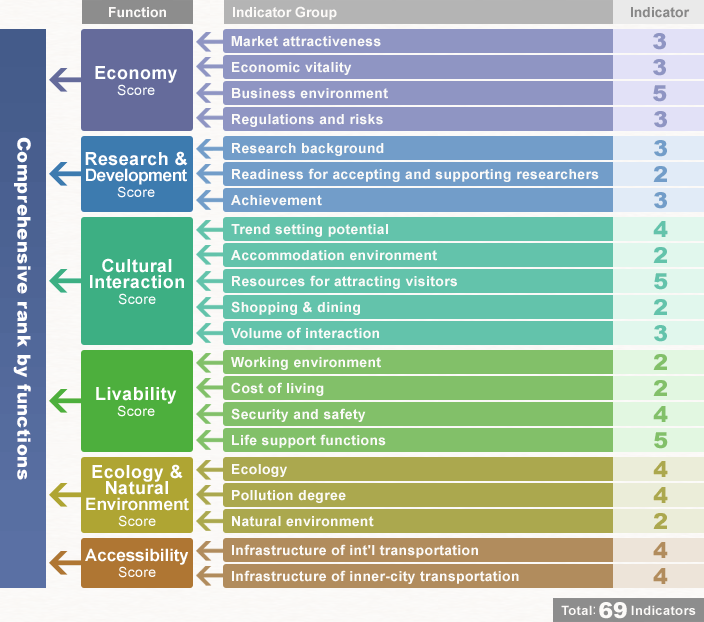
69 Indicators are referenced and customized from the statistical data issued from worldwide authorities, created based on the questionnaire survey conducted by the Mori Memorial Foundation, and produced by the own research by the Mori Memorial Foundation.
Sum of each score gained from each indicator are assembled in each function and finally become the total score of the city.
Methodology - Actor-specific Ranking
Flow of Creating the Actor-specific Ranking

MANAGERS
Businessman
(51, M)
- Expat of a global financial corporation
- Accompanying wife and two children
- Offered a position as a managing director in Asian brunches
- Candidate cities are Tokyo, Shanghai, Hong Kong, and Singapore
|

RESEARCHERS
Researcher
(31, M)
- Ph.D. candidate as a foreign student
- Married with a classmate in the same program last year
- Need to make a decision soon which organization in which country to do research after graduation
|

ARTISTS
Artist
(24, F)
- Single, born in Germany, grew up in Tokyo
- Graduate student in modern art and decided to become a professional artist after graduation
- Considering which city is the best for pursuing creative activities
|

VISITORS
Tourist
(28, F)
- Office employee for a Japanese company
- Income has raised as promoting her career
- Traveling abroad for several times every year
- Planning the next travel for the coming summer vacation
|

RESIDENTS
Resident
(36, M)
- Born and grew up in his home city
- Employed in a company based in his home city
- Married with a class mate from the same city and has a 2 year old son
- Pondering whether to move out when purchasing a home
|

MANAGERS
- This offer must be an important turning point in his career. Which city should he chose under several choices?
- - To develop a successful career, the better would be the more business opportunity. The scale and growth of business should be taken into account.
- - Smooth transaction under reasonable restriction should be important for ease in business.
- - As a managing director, many local staffs should be hired. Availability of excellent human resources and business partners is important.
- - Accompanying family, living environment such as security, pollution, education, and community should be considered.
|

RESEARCHERS
- He wishes to develop his career as a researcher. Where should he base to deepen his specialty under an ideal environment?
- - To dig his major deeper, it would be ideal to be in a prominent institution with famous professors and rich facility. Quality of institutions, researchers, and directors must be the most important.
- - Opportunity in obtaining information of other researches through symposiums or academic network would motivate his research.
- - Research grant and housing support would help him concentrate in his research. Alternatives in open careers is also important.
- - His wife also wishes to continue research so that academic and living environment are both need to be checked.
|

ARTISTS
- What is needed for her to be acknowledged as an artist?
What kind of environment would be ideal for her to become professional?
- - First she need is a studio. It is important to rent certain space with reasonable price for her production.
- - Cultural stimulus from the environment and other artists is a critical factor in pursuing art.
- - Exhibition spaces such as galleries and museums have to be abundant for her exposure as an artist.
- - She has to sell her products to live as an artist. Mature market with collectors and curators would be critical. She could be supported by a patron if her work is highly evaluated.
|

VISITOR
- She is planning a long vacation so that she wishes to carefully select the most valuable place from many alternatives. Where should she travel?
- - She wants to forget her daily life being exposed in a environment with good ambience in a secure place.
- - Popular tourism destinations such as world heritages are critical factors.
- - Choice of accommodation in variety of ranks is also important.
- - Dining is also one of the pleasures of travel. Good. restaurants have to be listed.
- - Final item is shopping. Souvenirs those cannot get in Japan are precious.
|

RESIDENTS
- He has lived in his home city with no doubt however, started wondering if this should last forever. What is important for him and his family in their life?
- - Most important is the general prices and living environment.
- - Steady job or its opportunity with a reasonable income is necessary in living.
- - Education is also important thinking about the future of his son.
- - Enjoying holidays with family under variety of leisure activities should enrich their life.
- - Daily life in a safe and easing society with low rate of crime and high level of welfare would be ideal
|
Profiles of each Actor are assumed and agendas in evaluating cities
from the standing point of those Actors are considered.

MANAGERS
- Accumulation of enterprises & business deals at or above a given level
- Potential of business growth
- Ease of business (incl. regulations and taxes)
- Business surroundings
- Availability of human resources
- Accumulation of business support industry
- Favorable environment for business and for employee’s families
- Politics, Economy, Disaster risk
|

RESEARCHERS
- Quality of research institutions, researchers and directors
- Accumulation of research institutes & researchers
- Existence of opportunities and venues that stimulate research activity
- Readiness to accept researchers (research funding, support with living expenses, etc.)
- Potential after graduation (job, etc.)
- Living environment
|

ARTISTS
- Cultural stimulus
- Concentration of artists
- Art markets
- Environment (studio space, etc.) for Creative Activities
- Living environment (ease of living)
|

VISITORS
- Cultural appeal and opportunities for interaction
- Public safety
- Tourist Destinations
- Accommodations at or exceeding a certain level
- Dining options, cost, etc.
- Shopping environment, cost, appeal, etc.
- Mobility (time to destination, fares, etc.)
|

RESIDENTS
- Economic environment (prices, ease of purchasing etc.)
- Living environment (dwelling environment etc.)
- Work environment (income, job opportunities)
- Educational environment
- Leisure activities
- Safety and security
- Healthcare standard
|
Key elements for each Actor are extracted from the agendas and listed below.
Specific indicators to evaluate each Actor’ s score are selected from
the 69 indicators in the matrix with 33 Key elements and summed up as Actor-based score.
Contact:
Institute for Urban Strategies
The Mori Memorial Foundation
Yasuyuki Miwa
Link to the GPCI previous reports
